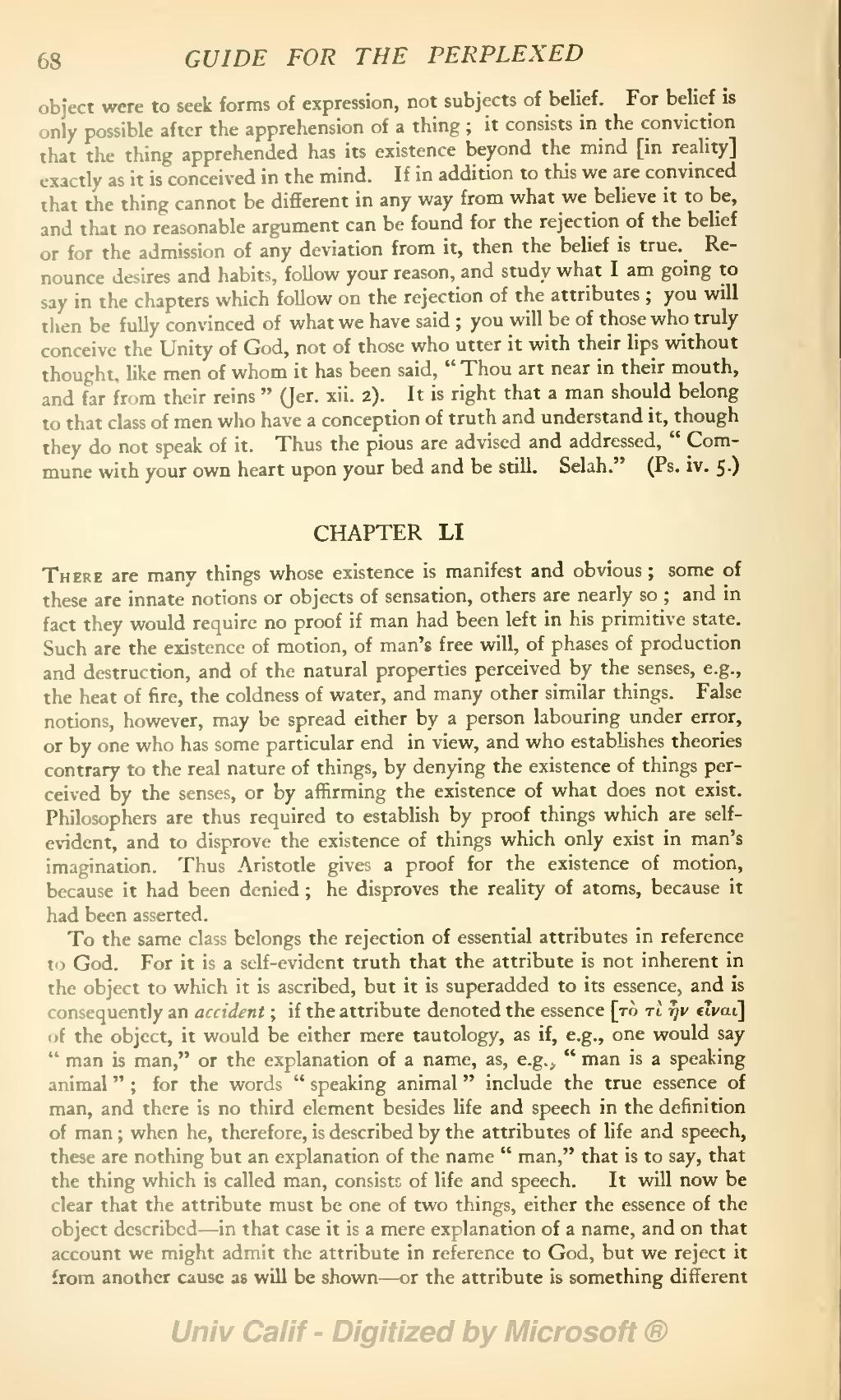were to seek forms of expression, not subjects of belief. For belief is only possible after the apprehension of a thing; it consists in the conviction that the thing apprehended has its existence beyond the mind [in reality] exactly as it is conceived in the mind. If in addition to this we are convinced that the thing cannot be different in any way from what we believe it to be, and that no reasonable argument can be found for the rejection of the belief or for the admission of any deviation from it, then the belief is true. Renounce desires and habits, follow your reason, and study what I am going to say in the chapters which follow on the rejection of the attributes; you will then be fully convinced of what we have said: you will be of those who truly conceive the Unity of God, not of those who utter it with their lips without thought, like men of whom it has been said," Thou art near in their mouth, and far from their reins" (Jer. Xii. 2). It is right that a man should belong to that class of men who have a conception of truth and understand it, though they do not speak of it. Thus the pious are advised and addressed," Commune with your own heart upon your bed and be still. Selah." (Ps. iv. S.)
CHAPTER LI
THERE are many things whose existence is manifest and obvious; some of these are innate notions or objects of sensation, others are nearly so: and in fact they would require no proof if man had been left in his primitive state. Such are the existence of motion, of man's free will, of phases of production and destruction, and of the natural properties perceived by the senses, e.g., the heat of fire, the coldness of water, and many other similar things. False notions, however, may be spread either by a person labouring under error, or by one who has some particular end in view, and who establishes theories contrary to the real nature of things, by denying the existence of things perceived by the senses, or by affirming the existence of what does not exist. Philosophers are thus required to establish by proof things which are selfevident, and to disprove the existence of things which only exist in man's imagination. Thus Aristotle gives a proof for the existence of motion, because it had been denied: he disproves the reality of atoms, because it had been asserted.
To the same class belongs the rejection of essential attributes in reference to God. For it is a self-evident truth that the attribute is not inherent in the object to which it is ascribed, but it is superadded to its essence, and is consequently an accident: if the attribute denoted the essence of the object, it would be either mere tautology, as if, e.g., one would say "man is man," or the explanation of a name, as, e.g.," man is a speaking animal": for the words" speaking animal" include the true essence of man, and there is no third element besides life and speech in the definition of man; when he, therefore, is described by the attributes of life and speech, these are nothing but an explanation of the name" man," that is to say, that the thing which is called man, consists of life and speech. It will now be clear that the attribute must be one of two things, either the essence of the object described-in that case it is a mere explanation of a name, and on that account we might admit the attribute in reference to God, but we reject it from another cause as will be shown-or the attribute is something different from
